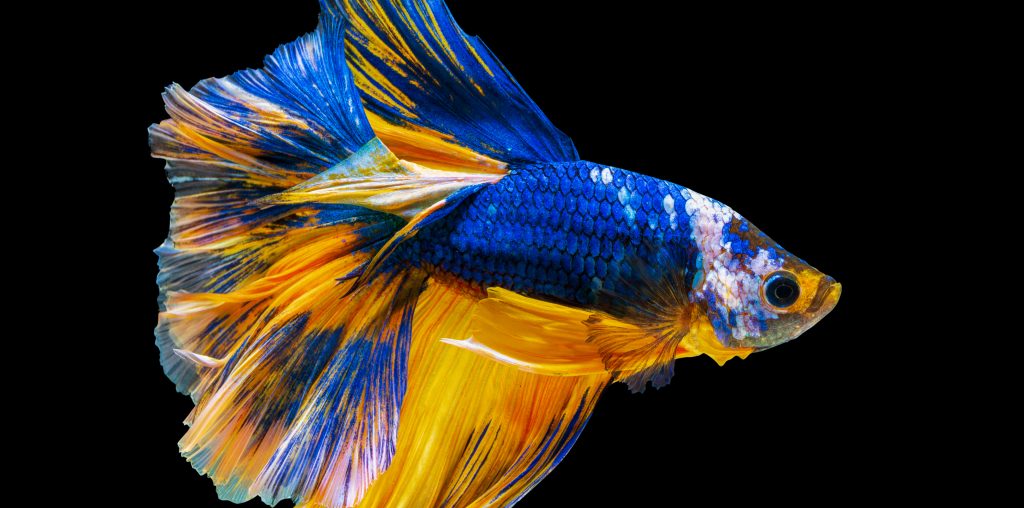Keeping Betta fish: A Guide to Caring for These Beautiful Creatures
Betta fish, also known as Siamese fighting fish, are one of the most popular and beautiful aquarium fish species. With their vibrant colors and flowing fins, Betta fish make a stunning addition to any home or office aquarium. However, caring for these delicate creatures requires proper knowledge and attention. In this blog post, we will discuss essential tips for keeping Betta fish and ensuring they live a healthy and happy life.
Tank Setup and Environment
The first step in caring for Betta fish is providing them with the appropriate tank setup. Betta fish are tropical freshwater fish and require a warm and comfortable environment to thrive. Here are some important factors to consider:
- Tank size: A common misconception is that Betta fish can thrive in small bowls or containers. However, Betta fish need ample space to swim and explore. A tank size of at least 5 gallons is recommended for a single Betta fish. The larger the tank, the better, as it allows for a more stable water environment.
- Water temperature: Betta fish are tropical fish and require a water temperature between 78 and 82 degrees Fahrenheit (25-28 degrees Celsius). Invest in a reliable aquarium heater to ensure the water remains at the appropriate temperature at all times.
- Water quality: Betta fish are susceptible to poor water conditions, so it is crucial to maintain proper water quality. Regularly test the water parameters and perform water changes as needed. A good rule of thumb is to change 20-30% of the water every week. Use a water conditioner to remove chlorine and other harmful substances from tap water.
- Filtration: While Betta fish can survive in tanks without a filter, it is highly recommended to have one. A filter helps maintain good water quality by removing toxins and maintaining oxygen levels. Choose a filter with a gentle flow, as excessive water movement may stress the fish.
Feeding and Nutrition
Proper nutrition is essential for the health and vitality of Betta fish. Here are some guidelines for feeding Betta fish:
- Quality food: Betta fish are carnivorous and require a high-protein diet. Choose high-quality betta fish pellets or flakes, which are specifically formulated for their dietary needs. It is also beneficial to supplement their diet with frozen or live foods like bloodworms or brine shrimp occasionally.
- Feeding frequency: Betta fish should be fed once or twice a day, with only what they can consume within a couple of minutes. Overfeeding can lead to bloating and other digestive issues, so it’s important to avoid excessive amounts of food.
Tank Maintenance and Care
Regular tank maintenance is crucial to keeping Betta fish healthy. Here are some important tasks to include in your routine:
- Water changes: As mentioned earlier, regular water changes are essential for maintaining good water quality. Replace a portion of the water weekly and ensure temperature and water chemistry are consistent.
- Tank cleaning: Use a gentle aquarium sponge or brush to clean the tank walls, decorations, and gravel. Avoid using soap or detergents, as they can be harmful to the fish. Clean only with warm water.
- Monitor behavior and health: Keep a close eye on your Betta fish’s behavior and appearance. Look for signs of stress, illness, or changes in appetite. It’s normal for Betta fish to rest near the surface, but if they are constantly gasping for air, it may indicate a problem with water quality or oxygen levels.
Enrichment and Entertainment
Betta fish, like any other pet, need mental stimulation and enrichment. Here are some tips to keep your Betta fish entertained:
- Tank decorations: Provide hiding spots and objects for your Betta to explore. Live or silk plants, caves, and driftwood are excellent choices for creating a stimulating environment.
- Variety and changes: Occasionally rearrange the tank decorations to provide a fresh environment for your Betta fish. Introduce new objects or plants every now and then to keep their curiosity and interest levels high.
- Avoid overstimulation: While it’s important to provide enrichment, avoid overcrowding the tank with too many decorations or tank mates. Betta fish are known for their territorial behavior and may become stressed in a cluttered environment.
Conclusion
Caring for Betta fish requires dedication, knowledge, and attention to detail. By providing them with the right tank setup, feeding them a nutritious diet, maintaining proper water quality, and offering mental stimulation, you can create a thriving environment for your Betta fish. Remember, a happy and healthy Betta fish will reward you with its stunning beauty and graceful presence in your home or office aquarium.
Visit our Bettas lovers group for more discussion about this topic.

